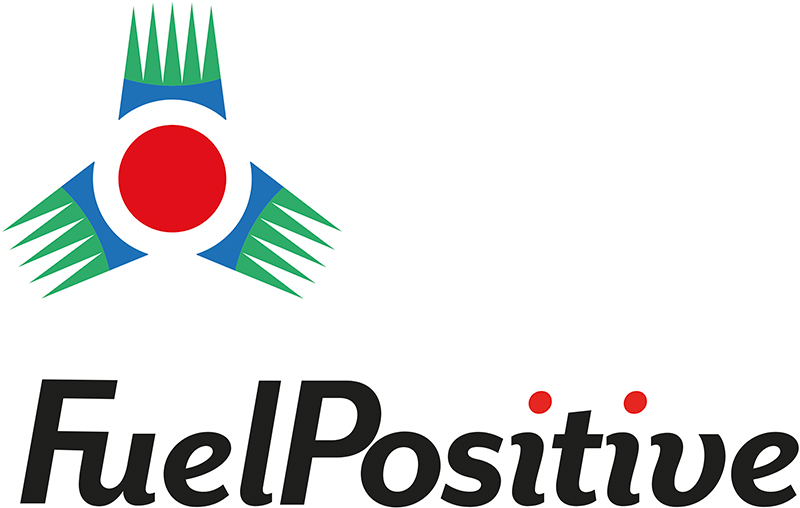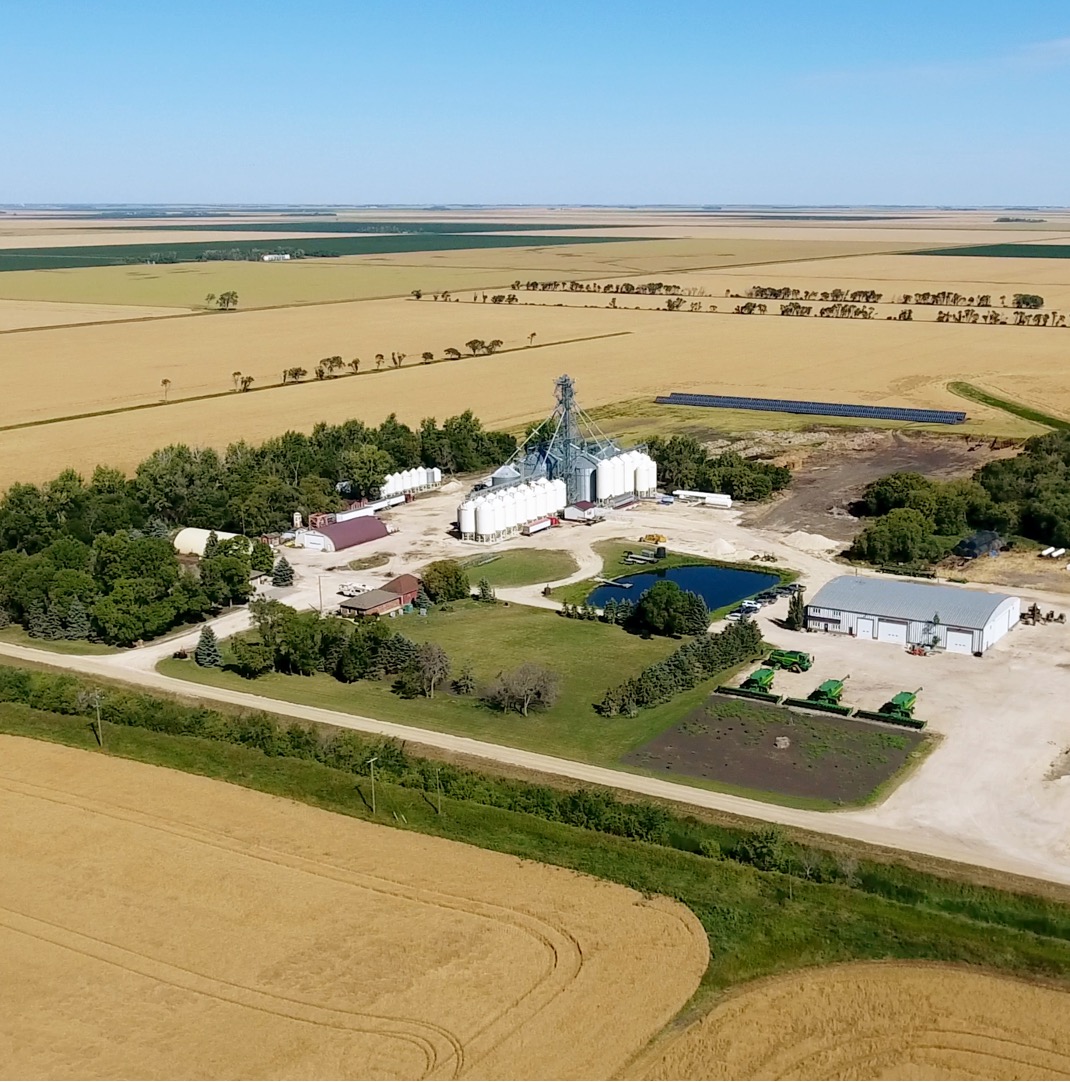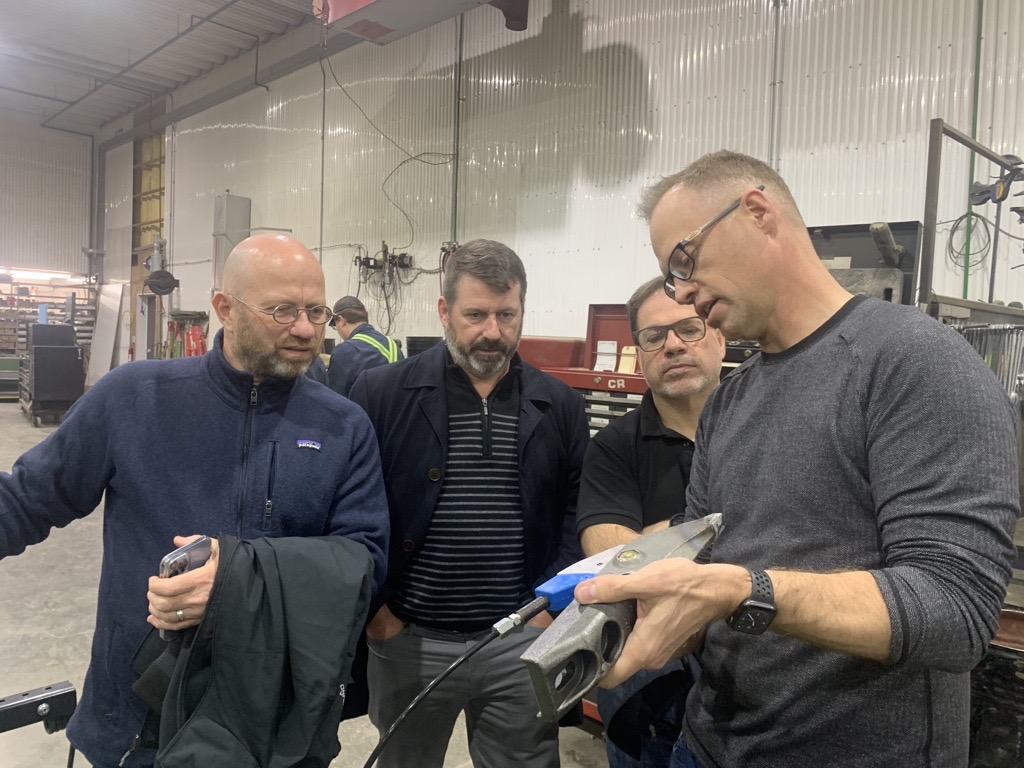
FuelPositive Corp. (TSX.V: NHHH) (OTCQB: NHHHF)
Investment Considerations
- FuelPositive Corp. is a growth stage company focused on manufacturing, licensing, partnership and acquisition opportunities relating to energy-efficient technologies and sustainability.
- The company’s flagship product is a modular, scalable and transportable system for producing green ammonia for use across multiple industries.
- FuelPositive’s green ammonia technology solves real problems facing the industry today, including supply, storage and distribution limitations.
- The global ammonia market is forecast to reach $81.42 billion by 2025, expanding at a CAGR of 5.59% from 2017.
- The global green ammonia market is projected to grow from $16 million in 2021 to reach $5,415 million by 2030, expanding at a CAGR of 90.2% during the forecast period.
- The FuelPositive management team is comprised of individuals with entrepreneurial, finance and energy solution backgrounds.
FuelPositive Corp. (TSX.V: NHHH) (OTCQB: NHHHF) is a growth stage company focused on licensing, partnership and acquisition opportunities relating to energy-efficient technologies and sustainability. The company is committed to providing commercially viable and sustainable clean energy solutions, including green ammonia (NH3), for use across a broad spectrum of industries and applications.
FuelPositive is headquartered in Toronto, Canada.
Hydrogen Economy Problems and FuelPositive’s Carbon-Free Technology
Hydrogen has been positioned as the best alternative to fossil fuels, but increasingly, green ammonia is being considered as a more practical solution.
The hydrogen economy is currently facing many challenges. Traditional (grey) ammonia manufacturing exists on a massive scale, but centralized refineries using the Haber-Bosch system that relies on the use of fossil fuels result in some of the world’s most concentrated CO2 emissions. In total, an estimated 200 million metric tonnes of grey ammonia are consumed each year, with greater than 80% utilized by the agricultural sector.
FuelPositive’s flagship carbon-free green ammonia production technology provides an innovative solution to these environmental concerns. Developed by Dr. Ibrahim Dincer and his team, the company’s decentralized platform allows for the in-situ production of green ammonia in an entirely sustainable manner, using only water, air and sustainable electricity.
The production of hydrogen is energy intensive, but it is just one variable hindering the growth of the hydrogen economy. Other hurdles include:
- Storage – The storage of hydrogen by compression or liquification are both cost prohibitive and unsustainable. Ammonia storage, in comparison, is well established worldwide.
- Distribution – The distribution network for effective hydrogen deployment has yet to be developed, as the extreme high-pressure distribution requirements to transport hydrogen would result in enormous infrastructure costs. The smarter alternative is to distribute ammonia, which is hydrogen-dense. Not only does the production of FuelPositive’s green ammonia require less energy than producing hydrogen on its own, but it stores 65% more hydrogen than highly compressed pure hydrogen. Green ammonia is the ideal carrier of hydrogen.
- End Use – R&D on the transportation-related end use applications for hydrogen is in its infancy, but almost any car, truck, ship or plane can be easily converted to run on green ammonia at a considerably lower cost per mile traveled when compared to traditional fossil fuels. Increasingly, green ammonia is being hailed as the liquid fuel of the future.
A key benefit of FuelPositive’s patent-pending, first-of-its-kind green ammonia production technology is its flexibility. The modular, scalable and transportable system (built to fit within standard shipping containers) allows for small, medium or large-scale production of green ammonia on location. This decentralized approach eliminates the challenges and volatility associated with traditional refineries and the wildly unreliable supply chain. As such, with an appropriately sized FuelPositive system and access to renewable energy, the end use applications for the company’s platform are nearly infinite. End users will have the green ammonia they need in the right amount, at the right time, in the right place – at a steady price, year after year.
Manufacturing Partnership
On May 19, 2021, FuelPositive announced its selection of National Compressed Air Canada Ltd. (“NCA”) to be its partner in manufacturing the company’s Phase 2 full-sized commercial prototype systems for green ammonia production.
In a news release detailing the partnership, FuelPositive CEO Ian Clifford noted, “This critical milestone for FuelPositive will confirm the broad application potential for our technology and is the backbone of our Carbon-Free Hydrogen-NH3 offering. Partnering with the knowledgeable and experienced team at NCA on this commercialization project will bring our development-stage program to life.”

The first farm FuelPositive will be operating on – an 11,000-acre crop farm in Manitoba, Canada
FuelPositive is estimating its first demonstration prototype production system will be deployed on a farm in Manitoba, Canada in late summer 2022. Its second and third systems are expected to be set up in similar demonstration pilot projects later in 2022.
Global Ammonia Market Outlook
The entire global ammonia market was valued at $52.71 billion in 2017 and is forecast to reach $81.42 billion by 2025, growing at a CAGR of 5.59%, according to data from Fior Markets.
In contrast, the global green ammonia market is projected to grow from $16 million in 2021 to $5,415 million by 2030, at a CAGR of 90.2%, according to a Research & Markets study. This explosive growth is expected because of green ammonia’s potential as an alternative to fossil fuels and its role in the hydrogen economy.
The agricultural industry consumes more than 80% of global grey ammonia, primarily as fertilizer. Smaller percentages can be attributed to the waste, water treatment, refrigerants, antiseptic, textile, mining and pharmaceutical industries.
One of the most polluting industries on the planet consists of conventional agribusinesses. These polluters are responsible for more greenhouse emissions per year than transportation. This is where FuelPositive’s technology is expected to be extremely beneficial.
Management Team

The FuelPositive team on site at the company’s first demonstration pilot project in Manitoba, Canada
Ian Clifford is Director, CEO and Founder of FuelPositive Corp. He has over 25 years of experience in the fields of technology and marketing and has successfully led the company to global brand recognition through its unique energy solutions. Since 2006, Mr. Clifford has raised over $50 million in equity financing for FuelPositive. He also co-founded digIT Interactive, a full-service internet marketing company serving Fortune 500 clients, which he sold at the peak of the market in 2000.
Nelson Leitte, Chief Operating Officer, is focused on the design, development and production of the FuelPositive prototype units and the future commercialized units. Mr. Leitte comes from an engineering and manufacturing background, with over 30 years in the high tech automation and robotics industries. His key transferrable experiences include inventing solutions for companies such as Toyota, Tesla, Kimberly Clark and many more. The size of systems ranged from under $100,000 to large projects over $10 million. Many of the systems are currently in production today at various facilities around the world. At FuelPositive, Mr. Leitte is taking an aggressive approach, driving the commercialization of the company’s systems, along with evolving the technology further with its team of researchers and scientists.
Dr. Ibrahim Dincer is a scientific advisor to FuelPositive and is recognized as a pioneer and international leader in the area of sustainable energy technologies. Along with his team, Dr. Dincer invented the modular carbon-free ammonia (NH3) production technology that FuelPositive is commercializing. His area of specialty covers various topics including ammonia, hydrogen energy and fuel cells; renewable energy systems; energy storage systems and applications; carbon capturing technologies, and integrated and hybrid energy systems He is currently managing an exemplary team of researchers in this commercialization project.
Dr. Ghassan Chehade, Lead Project Engineer at FuelPositive, is a hydrogen/ammonia subject matter specialist, focused on the link between climate change and energy systems. He worked at Clean Energy Research Laboratory, performing research related to clean energy systems. His discoveries on ammonia and hydrogen production methods in the lab have translated to commercial solutions that can revolutionize the way to reduce carbon emissions. Dr. Chehade, who previously worked with Dr. Ibrahim Dincer, is listed with Dr. Dincer as co-inventor on the company’s provision patent for its green ammonia production system.
François Desloges, Senior Business & Technology Analyst, has over 25 years of experience in high tech entrepreneurship. With a degree in electrical engineering from Polytechnique de Montréal, he has developed electronic systems software applications and material science at the heart of innovative processes for start-up companies. An out-of-the-box-thinker obsessed with quality, Mr. Desloges has always preferred small teams and projects with the potential to disrupt the status quo.
André Mech is FuelPositive’s Advisor, Carbon Credits and Emissions Reduction. Mr. Mech has worked in the emissions reduction space for more than 20 years, assessing the emission profiles of hundreds of transportation and renewable energy companies and technologies on two continents. His experience positions him as one of the most knowledgeable emissions reduction and carbon credit specialists in the sector.
Dr. Claudia Wagner-Riddle, Agriculture Advisor to FuelPositive, is a Professor in the School of Environmental Sciences (SES), University of Guelph, Canada. Dr. Wagner-Riddle leads an internationally-renowned research program utilizing the measurement of greenhouse gas emissions to determine the carbon footprint of food, feed and fuel produced by agriculture. She is the Editor-in-Chief of the international journal Agricultural and Forest Meteorology and leads a nationwide training program on climate-smart soils. Dr. Wagner-Riddle was recently appointed Director of the North American regional chapter of the International Nitrogen Initiative.
Independent Board Member Olushola (Shola) Ashiru is a Partner and Portfolio Manager at New Energy Fund (NEF) II. Shola Ashiru has worked in the field of clean technologies since 2007. She co-founded New Energy Fund II (an NEF Advisors company), which is a private equity yield fund set up to take equity positions in high yielding renewable energy projects ranging from fuel cells, solar and wind to efficiency and storage options. Based in New York City, Ms. Ashiru started her career in Cleantech Equity Research, then Equity Capital Markets at Ardour Capital Investments. She serves as judge in the annual New York Business Plan Competition, the annual Cleantech Open Northeast competition, and also the annual National Renewable Energy Laboratory’s Industry Growth Forum.
